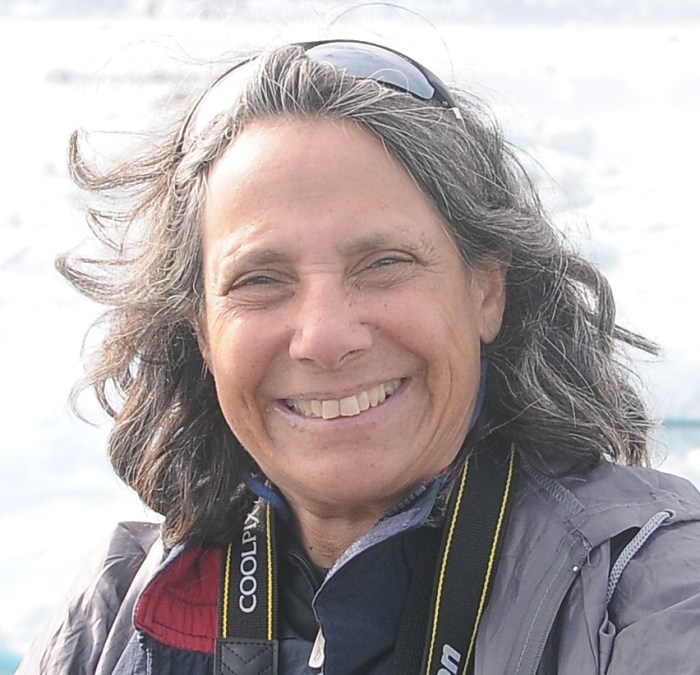For Anthony Clark, it all started in a political science class in graduate school at the Appalachian State University in North Carolina in 2003. The Mineola native became fixated with presidential libraries after screening a video of President
Bill Clinton’s last rally on Oct. 31, 1996.
“Clinton said ‘Ya know this is my last campaign,’ and I said no its not,” Clark said. “[His] last campaign is when he builds his library.” Clinton’s library opened in 2004.
Clark, 47, is taking his pet project—10 years in the making—to the Internet for help. On Sept. 2, Clark launched a campaign on Kickstarter.com, a popular crowdfunding platform, to raise money to complete the research for his book,
The Last Campaign: How Presidents Rewrite History, Run for Posterity and Enshrine their Legacies.
Kickstarter is a risky venture in that the funding objective must be reached in a specific period of time. Miss the deadline and you get none of the money. Clark, a St. Aidan’s alum, has until Oct. 1 to raise $7,500.
He plans to use the funds to visit five out of the 13 presidential libraries recently renovated in the United States, including the George W. Bush Library that opened this past April in Dallas, TX.
Clark attained 16 percent ($1,276) of the total within 24 hours of launching his campaign. As of press time, he has raised $2,508 from 42 donations.
“Now I’m getting people to donate who I don’t even know, which is great,” he said. “I’m not going to make it to $7,500 with just my friends and family.”
Clark wrote a term paper at Appalachian State, titled “The Last Campaign.” His professor envisioned a book cover.
“My professor said I needed to make this into a book,” said Clark. “I had a little RV at the time so I got into the RV and went around to the presidential libraries.”
Clark became obsessed with how presidents try to reshape their legacies and feels there’s more to their stories, which he plans to research and reveal.
“Few understand the hidden history of the libraries—federal institutions operated by our tax dollars—and the level to which money and politics play a role in everything from exhibits, public and educational programs to the choice of location and even personnel,” he said. “This is because the story of presidential libraries—the documented, historical story—has never been told. Until now.”
From 2003 to 2006, Clark visited every library twice, spending about one month in each one. But what kick-started (no pun intended) his quest further was resistance from the National Archives for presidential library records.
“I went through one year of them stalling and then they said I’d need to send a Freedom of Information Act request,” he said. “The first request, they said was too big or too many records responsive. The second they said was too small.
So I fought them for a couple of years and I went public, doing a series of lectures.” That’s when Lacy Clay called.
Sen. Clay (D-MO) is the chairman of the House subcommittee that oversees the libraries; he asked Clark to brief his staff on his take of the national landmarks. For eight months Clark worked at a law firm in Washington D.C. during the day, and spent his nights with Clay’s staff. Then, in 2009, Clay hired him as a full-time staffer to manage hearings and investigations into the libraries and the National Archives and Records Administration.
Clark jumped at the opportunity, but it did not come without sacrifice.
“Since I had that authority, I could not do research at the same time,” he explained. “Congress has a lot more access than the average citizen so I had to agree to postpone my in-person research while I was on the Hill.”
His appointment ended this past January.
“Five of the libraries have completely renovated their exhibits and the GWB library just opened,” he said. “So I have to travel back to those libraries and finish my research.”
Clark expects to finish the book by July 2014 if he reaches his Kickstarter goal. The Chaminade High School and NYU alum is in talks with book publishers, but no deals are in place. He said he wants to take advantage of library milestones next year.
“In 2014, there are 15 milestone events (library foundings, presidents birthday’s, etc.) that will be celebrated at the libraries so I want to take advantage of that [attention].”
Clark was pleased to see the man who sparked his interest align with his way of thinking at the newest library.
“At the George W. Bush [library opening], Clinton was there and said ‘This is the greatest attempt by a former president to re-write history,’” he said. “Everyone laughed, but that’s kind of my point. It’s interesting to see a former president agree with me.”
Clark said presidential libraries tend to “renovate completely and throw out their entire exhibits and bring in brand new stuff” every five or 15 years. One particular piece of U.S. history Clark is interested in unearthing is the remaining records pertaining to the JFK assassination, which will be available in 2017. With the 50th anniversary on Nov. 22 this year, Clark hopes the process might be accelerated.




























